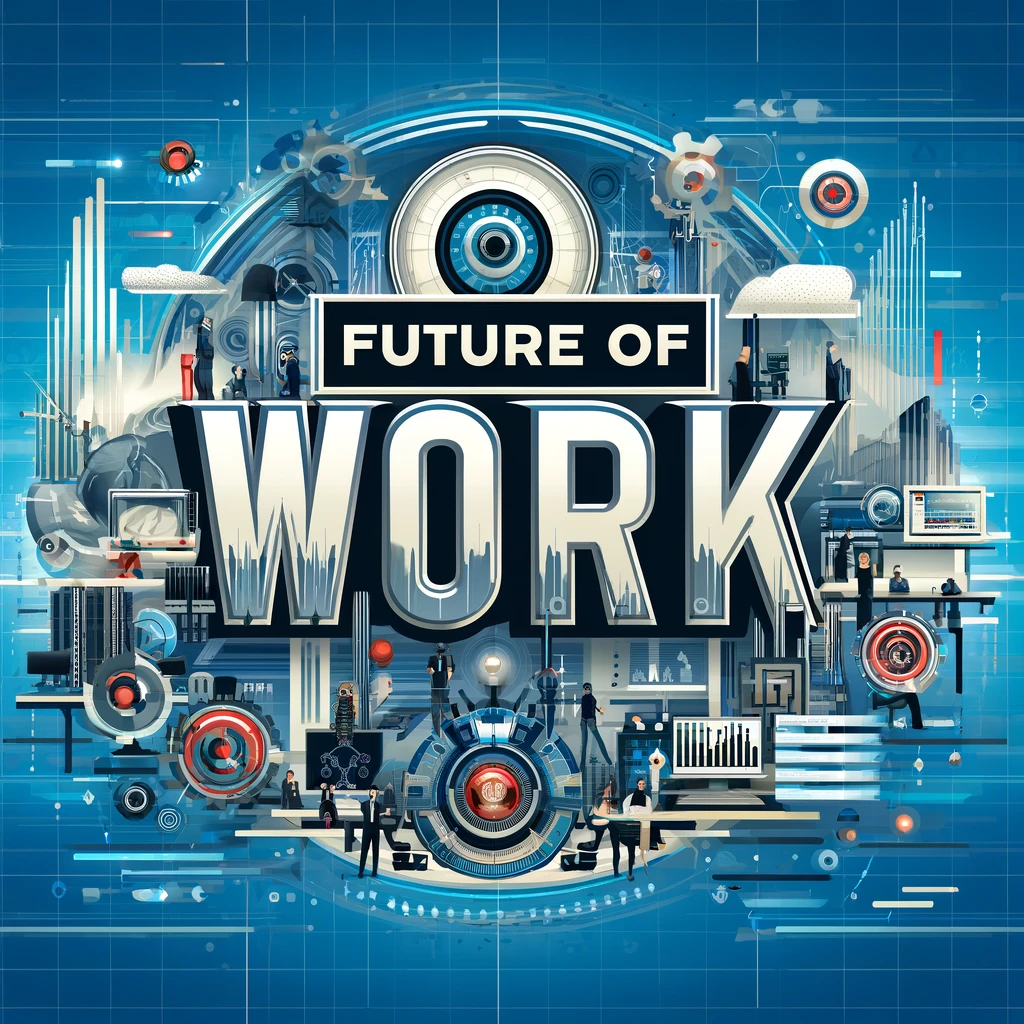Ep. 117 – The Future of Work: How New Innovations Are Shaping Careers and Industries
Category: Business
Reading further will guide you towards:
1. Understanding how technology is reinventing job roles and creating new career pathways.
2. Discovering the skills that will be most in demand in the future workforce.
3. Identifying the industries most likely to experience significant changes due to technological advancements.
4. Learning about the potential challenges and solutions in adapting to the future work environment.
5. Gaining insights into how you can prepare yourself for the shifts in the job market.
Embracing Change in the Modern Workforce
 Imagine waking up in a world where your work is largely dictated by your skills, experiences, and ability to adapt and integrate new technologies into your daily routines. This transformation in business is not a distant reality but the unfolding scenario of the modern workforce. The rapid evolution of technology is not just reshaping what work looks like but redefining how careers are built, and industries are structured. As we stand on the brink of this transformation, it is crucial to understand the opportunities and challenges this new era presents.
Imagine waking up in a world where your work is largely dictated by your skills, experiences, and ability to adapt and integrate new technologies into your daily routines. This transformation in business is not a distant reality but the unfolding scenario of the modern workforce. The rapid evolution of technology is not just reshaping what work looks like but redefining how careers are built, and industries are structured. As we stand on the brink of this transformation, it is crucial to understand the opportunities and challenges this new era presents.
From artificial intelligence to remote collaboration tools, innovations drive a significant shift in career expectations and industry operations. These changes demand a new mindset and skills geared towards flexibility, technological fluency, and continuous learning. The impact of these technologies stretches across all sectors, creating a landscape where the proactive thrive. This introduction into the future of work is not just about understanding these changes but mastering them to carve out a successful path in this new frontier.
The Influence of Innovation: A New Career Paradigm
Innovations in technology are not merely tools of convenience but catalysts for entire career revolutions. For instance, automation and AI are expected to transform traditional manufacturing, finance, and healthcare roles. This transition creates a dual-edged sword—where some jobs disappear, and new ones emerge that require more complex and technologically integrated skills. Understanding this shift is crucial for anyone looking to future-proof their career.
The second layer of this transformation involves how these technologies foster new ways of working. Once considered niche or temporary, remote work has become a staple in modern employment, supported by digital platforms that enhance productivity and communication. This shift changes where we work and profoundly affects workplace culture and personal work-life balance. As these trends become normalized, they redefine what it means to be an efficient, effective worker in the 21st century.
The Evolution of Work
 Three Key Insights into the Future
Three Key Insights into the Future
1. Rise of the Gig Economy: The gig economy is expanding and is driven by digital platforms, allowing people to offer their skills flexibly. This model provides unprecedented freedom and entrepreneurship opportunities but also presents challenges in terms of job security and benefits.
2. Skill Shifts and Lifelong Learning: As AI and robotics take over routine tasks, there is a growing demand for skills in problem-solving, leadership, emotional intelligence, and creativity. Lifelong learning is becoming a critical component of career development, emphasizing the need for continuous skill enhancement.
3. The Decentralization of Workplaces: Technology enables a more distributed workforce, decreasing the necessity for centralized office spaces. This can lead to significant changes in urban planning, real estate, and even environmental impact, highlighting the extensive influence of work-related technological advancements.
Adapting to New Norms
In the ever-evolving landscape of modern industries, integrating artificial intelligence into traditional manufacturing is a profound example of adaptation and growth. A typical scenario could unfold when well-established companies introduce AI integrations. Initially, this may face strong resistance from employees anxious about job security. Yet, through comprehensive training and the creation of new roles that leverage AI technology, the company can alleviate fears and enhance productivity and overall job satisfaction. This shift from apprehension to acceptance underscores the significant benefits of embracing technological change, transforming potential threats into avenues for advancement and employee fulfillment.
As this practice becomes more common, it shapes a new paradigm in the workforce, emphasizing the critical need for adaptability and proactive engagement with emerging technologies. Companies that are quick to adapt are finding that these changes safeguard their future and drive innovation and efficiency, setting a new standard in the industry. This evolving scenario offers valuable insights into the transformative power of technology in the workplace and highlights the importance of readiness and flexibility in today's fast-paced work environment.
Preparing for What's to Come
 Five Steps for Navigating the Future of Work
Five Steps for Navigating the Future of Work
1. Embrace Lifelong Learning: Invest in continuous education and training. Stay updated with emerging technologies relevant to your field to maintain a competitive edge.
2. Develop Soft Skills: As automated systems handle more routine tasks, soft skills like critical thinking, communication, and empathy will become crucial.
3. Explore Flexible Work Options: Familiarize yourself with remote work technologies and flexible work policies to adapt effectively to new work environments.
4. Participate in the Gig Economy: Consider freelance or contract work to build a diverse experience portfolio and understand the dynamics of modern work structures.
5. Plan for Career Transitions: Be proactive about career planning. Assess the future viability of your current job and consider pivoting to areas with growing demand and opportunities.
Mastering the Modern Workforce
As we navigate the vast changes brought about by new technologies, understanding the dynamics of 'The Future of Work' becomes beneficial and essential. By embracing innovations and preparing for the evolving demands of the job market, individuals and organizations can ensure survival and thriving success in this new era. The future is here and filled with opportunities for those ready to seize them.

